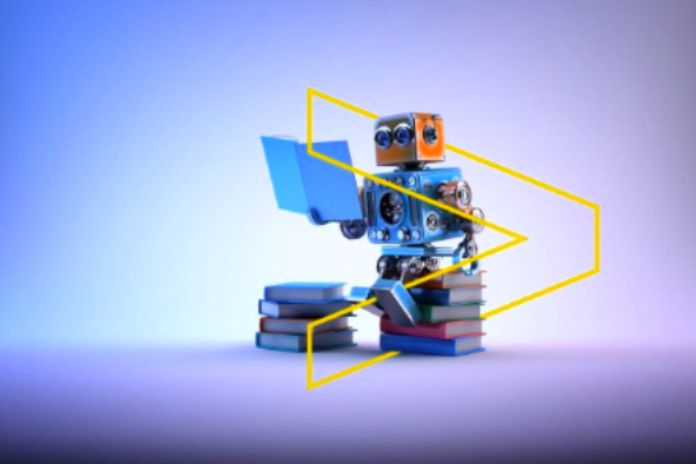Robotization: Digital transformation is no longer conceptual and has become practical for companies to remain healthy in the market.
In this scenario, the robotization of corporate processes appears as an innovation that optimizes operational activities, often repetitive and bureaucratic.
It allows the orientation of human efforts towards more strategic actions. This feature can be used broadly, and activities vary according to complexity. Thus, it ranges from sending emails to adopting personalized bots for customer service.
From this perspective, knowing the main technological tools does not mean that your company has advanced and has the best weapons. Then, the following question arises: “What is missing for your company to align high technology and cost reduction?”
In this post, we will detail how this robotization works in practice and the benefits of differentiating your company. Check out!
What Is The Difference Between Robotization And Automation?
The simplest way to understand the main difference between automation and robotization is to imagine the following scenario: think of a company that works with two different systems, an ERP and tax management software. Both are automated — perform calculations, organize data, run analyzes and generate reports with efficiency and varying degrees of complexity.
But who integrates these systems? After all, they weren’t necessarily designed to interact with each other. Having an employee bridge the gap and enter data manually will always be necessary.
Therefore, both terms operate under similar concepts. Robotization performs the interaction between automated processes and allows the employee who performs manual operations to focus on more critical functions that cannot be automated.
The robots interact with each system’s interface, creating precise communication without changing the structure of existing software. In addition, they imitate human action with more agility and safety.
The projection is for more efficient actions, increased productivity, and, without a doubt, reduced costs.
What Are The Benefits Of Robotizing Corporate Processes?
The advantages of robotizing corporate processes are numerous. Undoubtedly, this technological innovation has transformed the operational reality of companies, being one more tool to increase competitive potential. Check out other benefits!
Reduction Of Human Failures
Employees’ day-to-day work can be exhausting, increasing the chances of one detail or another going unnoticed. When performed by human hands, the repetitive tasks that are part of the professional routine are more prone to errors or failures, something natural for the individual. With the use of robotics, the level of precision in carrying out these tasks is greater.
Robots don’t get distracted by doing the same things or get tired. Specific commands are targeted, and they do not need to remember the step-by-step of each procedure, which eliminates waste in operations and reduces losses.
Economy With Human Resources
Robotization is synonymous with saving human efforts and, in collaboration with technology, directing this work to more strategic functions. Thus, the deployment and maintenance of robots in the corporate environment are tasks that cost less than an employee.
After all, it is not necessary to pay salaries, benefits, and bonuses. The investment becomes more profitable as agility and productivity are greater, without the parallel of labor charges.
Process Standardization And Optimization
The robotization of corporate processes automates operational activities, and procedures become standardized in maximum efficiency. This contributes to the measurement of results and more control of the company.
Data Security
We are in the era of data production. After all, thousands of pieces of information are produced, sent, and received every minute. In the business scenario, it is no different. Information circulates, and employees need to be alert to prevent intrusions into the system.
Relying on robots guarantees a quick and highly productive performance without losing focus on safety. Programming allows this feature to handle your company’s information without openness to problems, such as hackers, modification of financial transactions, and breach of secrecy.
What Is The Future Of The Robotization Of Corporate Processes?
Digital transformation represents very well what consumers, companies, and customers want. An example is how they use search engines to make essential decisions in life.
The advances are based on Big Data, Artificial Intelligence (AI), and Analytics. As a result, the trend toward the robotization of corporate processes is to leverage artificial intelligence, emphasizing the idea that robots do not replace employees; they only perform repetitive and bureaucratic tasks in an automated way.
These impacts reach different types of organizations and provide for meeting various levels of needs. Robots will be increasingly able to analyze data and make strongly informed decisions, increasing operational efficiency and optimizing work routines.
Is Your Company Prepared To Follow This Evolution?
Companies worldwide have sought to ensure an ideal structure, even modifying work processes to follow this trend. This is simple: they don’t want to be left behind.
It is essential to seek information and be aware of what is happening in the world, but, above all, to adopt measures and solutions that already exist in the market to embrace new technologies and meet the real needs of the corporate world. If your company doesn’t adapt, it doesn’t move forward. The market is very demanding and spares no effort in selecting the best.
Also Read: Difference Between RPA And Artificial Intelligence

